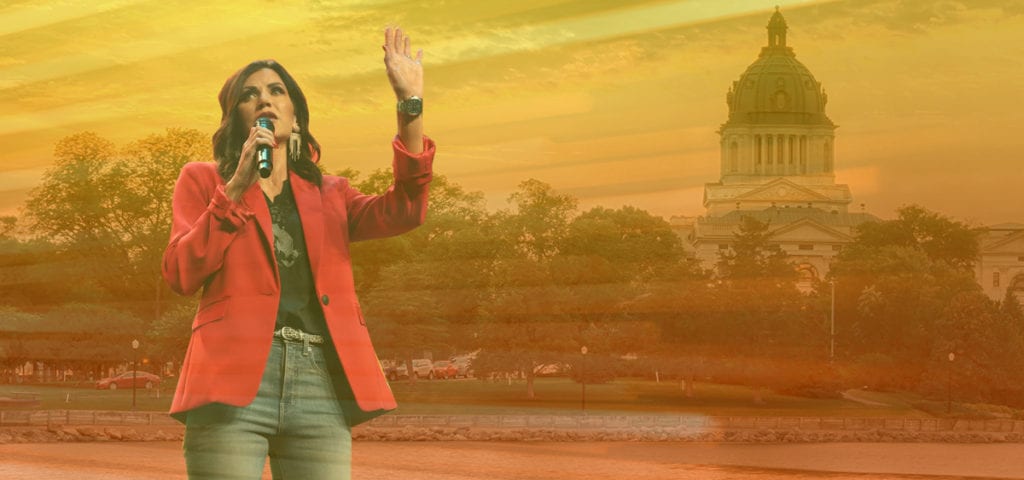South Dakota Gov. Kristi Noem issued an executive order on Friday contending that the cannabis legalization initiative passed by voters in November violated the state’s constitution.
South Dakota Gov. Joins Effort to Block Voter-Approved Cannabis Legalization

Full story continued below.
Advertisement
In an executive order issued on Friday, Republican South Dakota Gov. Kristi Noem contends that the recreational cannabis ballot initiative approved by voters in November “was not proper and violated the procedures set forth in the South Dakota Constitution.”
The directive also states that Highway Patrol Superintendent Col. Rick Miller and Pennington County Sheriff Kevin Thom have legal standing to sue over the amendment because they are acting on Noem’s behalf.
In the lawsuit, the plaintiffs claim that the measure violates initiative one-subject requirements. Miller and Thom argue that the broad reforms – a constitutional amendment – need to be approved through a constitutional convention.
South Dakota Attorney General Jason Ravnsborg’s (R) office and a pro-legalization group who led the campaign for the amendment argue that the amendment only covers one subject – cannabis.
Following the General Election results – when 53% of voters approved cannabis legalization and another 70% approved allowing medical cannabis – Noem said the reforms are “the wrong choice for South Dakota’s communities.”
“We need to be finding ways to strengthen our families, and I think we’re taking a step backward in that effort. … I’m also very disappointed that we will be growing state government by millions of dollars in costs to public safety and to set up this new regulatory system.” – Noem in an email to the Argus Leader
In 2019, Noem vetoed a bill to legalize hemp in the state, worried that it would legalize cannabis “by default.” She did sign a hemp legalization bill last year which included so-called “guardrails” she required including $3.5 million in funds to start the program, broad consent by growers for law enforcement inspections and a requirement they pay any costs associated with eradication of plants that test over the legal THC limits, and the banning of smokable hemp products.
Get daily news insights in your inbox. Subscribe
End